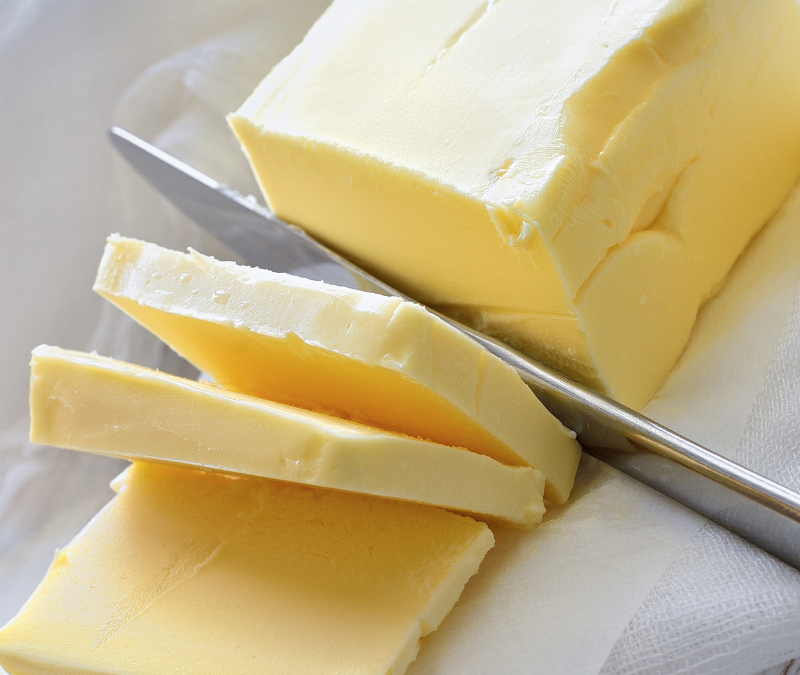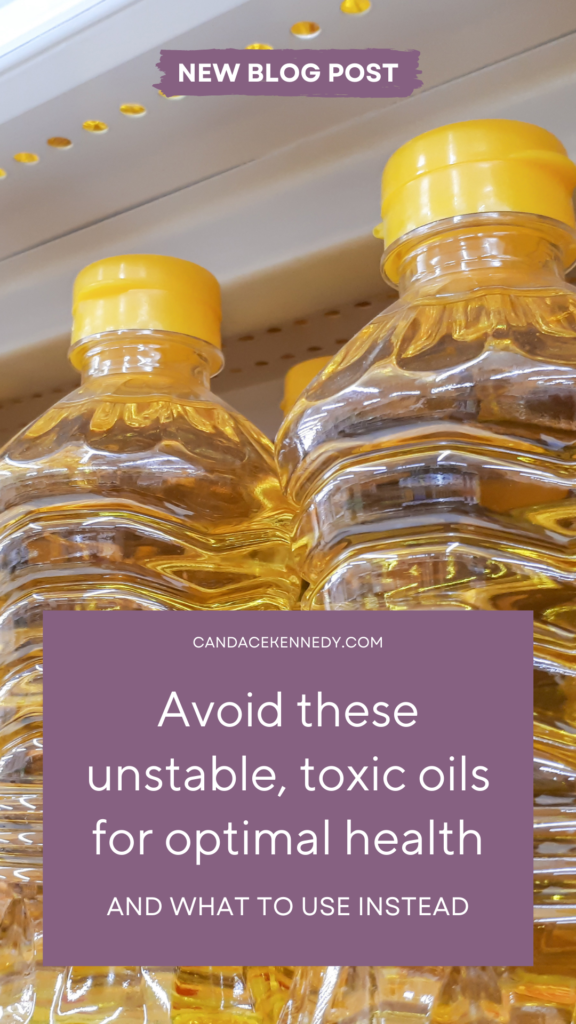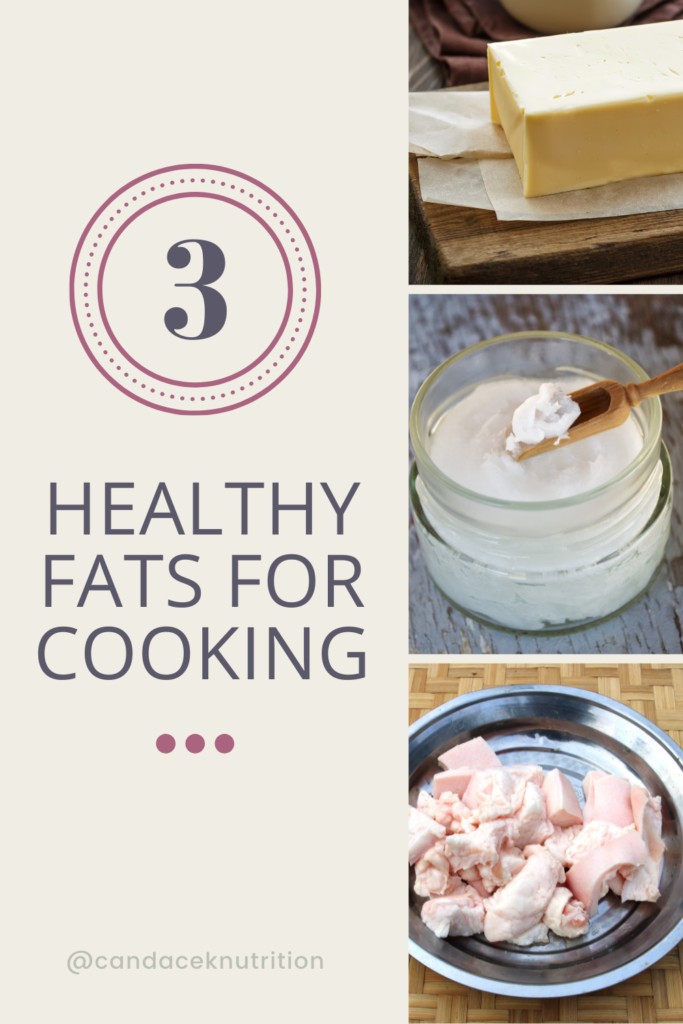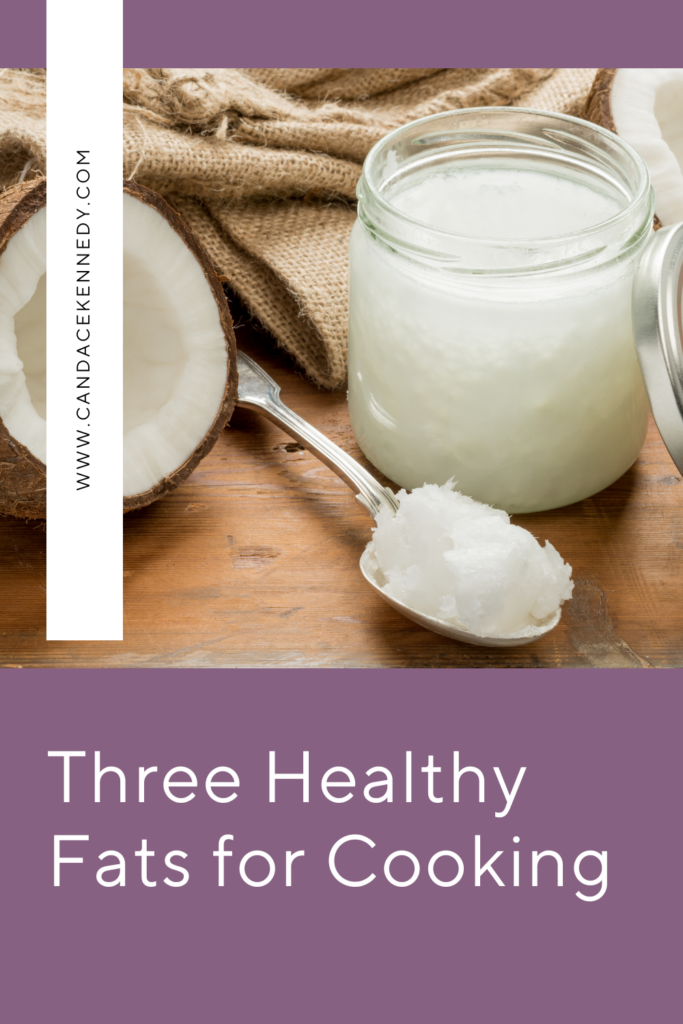Fat is an essential part of the human diet. But the definition of “healthy fat” has been wildly misconstrued. Saturated fat has been wrongfully vilified and is actually the most healthy, stable type of fat to cook with. Before you run away from this article in fear of fat (and calories), hear me out.
Fat is a highly misunderstood nutrient with conflicting research and opinions that have confused the general public and media into thinking fats are evil. Clinical trials and solid research, however, have proved the opposite.
Is saturated fat healthy?
A large meta-analysis reviewing close to 350,000 participants found no association between saturated fat and heart disease. Another study following 58,000 men for an average of 14 years found no connection between saturated fat intake and heart disease. So let’s move forward from the diet-heart hypothesis that has been widely disproven.
Studies show that high-fat diets can actually improve cholesterol levels, support brain function, and be part of a healthy lifestyle when the right kinds and the right amount of fat are consumed.
While it’s true that some fats, like polyunsaturated fats from industrial seed oils, are not part of a healthy diet, you do need the right kind of fat for many essential bodily functions, including:
- Building cell membranes
- Supporting your body’s hormone production
- Protection for organs and cells
- Dietary fat is a great source of of fat-soluble nutrients like vitamins A, E, D, and K.
It’s also true that not all fats are created equal. The right amounts of the right kinds of fat will make you healthier, help your brain work more effectively (your brain is 60% fat!) and improve the absorption of key nutrients. On the other hand, the wrong kinds of fats will slow you down and make you less healthy.
Saturated Fats are a Stable, Healthy Fat
How you source a fat and how that fat is made both make a huge difference in the nutritional quality of your food and the health impacts of what you eat.
Fats and cholesterol are essential to cell membrane structure and support, immune function, hormone synthesis (including progesterone, estrogen, and testosterone).
I don’t know about you, but I want my hormones and cell membranes to be made up of stable, quality fats, not overly processed or oxidized fats.
Not all fats are suitable for all types of cooking. For example, olive oil is great on top of salads, but It does not tolerate heat well.
Canola and vegetable oils are not healthy or stable
Vegetable oils are a far cry from “heart-healthy.” A more accurate name for vegetable oil is “industrial seed oil” as these oils are not derived from vegetables at all.
These oils were only introduced to the human diet in the early 1900s. Prior to that, seed oils, like canola and rapeseed oil, were industrial byproducts. Once food manufacturers realized that these oils could be bleached, deodorized and chemically altered and then marketed as a cooking oil, the war on traditional cooking fats began.
Seed oils are primarily made up of polyunsaturated fats (PUFAs). Polyunsaturated fats are fatty acids with many double carbon bonds (poly = “many”). The double bonds found in PUFAs are what make them more unstable and more susceptible to oxidative stress.
Which oils to avoid?
- 🚫 canola
- 🚫 corn
- 🚫 grapeseed
- 🚫 safflower
- 🚫 sunflower
- 🚫 rice bran
- 🚫 soybean
- 🚫 rapeseed
Learn more about seed oils in this post.
How to choose a healthy fat?
So which fats should you choose, especially when it comes to cooking? The key is to choose quality fats that won’t burn or oxidize.
Choose fats based on these qualities:
- Smoke point: If a fat is heated past its smoke point, it starts to break down and release free radicals.
- Fatty acid composition: The less saturated a fat, the more unstable the fat will be, especially at high heat. Fatty acids can be destroyed by light, heat, and oxygen so the more saturated a fat, the better it will be for cooking.
- Vitamin content: Some fats are full of essential vitamins and antioxidants, while others are overly processed and can cause a lot of damage.
What is a healthy fat for cooking?
My favorite choices for cooking:
🧈 GRASS-FED BUTTER OR GHEE:
➡️ Great source of CLA, and vitamins K2, D, and retinol.
➡️ Smoke point: 350° F for butter, 485° F for ghee
➡️ Ghee is about 51% saturated, making it a very stable option for higher heats.
I prefer to use raw butter, when possible. Realmilk.com is a great resource to located raw dairy in your area. If you live in California, many grocery stores carry Organic Pastures. If you don’t have access to raw dairy, look for butter from 100% grass-fed cows. Vital Farms is a great option. For ghee, I love this brand.
🥥 COCONUT OIL:
➡️ Great source of lauric acid and MCTs
➡️ Smoke point: 350° F
➡️ At 86% saturated fat, coconut oil is amazingly stable.
When shopping for coconut oil, look for organic. I really like Dr. Bronner’s coconut oil.
🥩GRASS-FED BEEF TALLOW:
➡️ Rich in vitamins A, D, K, and E
➡️ Smoke point: 420 °F
➡️ Tallow is very low in PUFAs and about 50% saturated fat (and 45% monounsaturated fat). So the fatty acids hold up nicely when heated.
Want to get crazy? My favorite way to cook is actually to combine coconut oil and butter/ghee for a really nutrient-dense, stable, and delicious way to cook. Now that’s a party!
What do you typically cook with? Tell me your favorites!
Important notes:
I am not a doctor, and I don’t claim to be one. I can’t prevent, treat, cure or diagnose illness or disease. The information presented on this website is not meant to replace a one-on-one relationship with a qualified health care professional and is not intended as medical advice, treatment or diagnosis. The purpose of this website is to share knowledge from my research and experience. I encourage you to make your own decisions regarding your health care based on your own research and relationship with your health care professional.
Some of the links on this page are affiliate links, which means I earn a small commission if you purchase through that link, at no additional cost to you. Thank you for supporting my work!
Resources:
Lipid peroxidation in culinary oils subjected to thermal stress
Free radicals, antioxidants and functional foods: Impact on human health
A review of fatty acid profiles and antioxidant content in grass-fed and grain-fed beef
The questionable role of saturated and polyunsaturated fatty acids in cardiovascular disease



